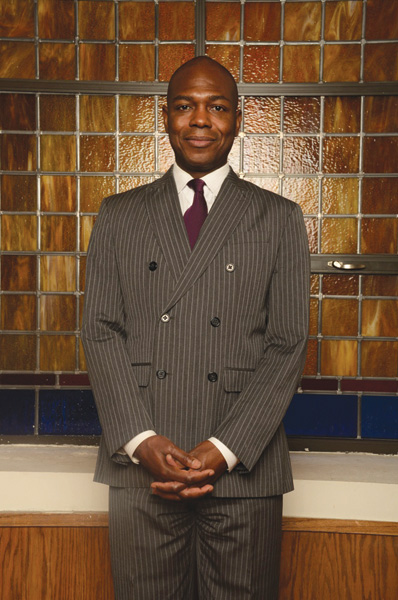Hope: From Harlem to Uganda

My 94-year-old African American grandmother did not expect her grandson to be gay, but she knew God was good—all the time! So when I was inspired to found a spiritual home for gay and lesbian worshippers in Harlem she was bold to cofound Rehoboth Church with me—the first openly gay pastor in Harlem. She took a leave of absence from Southern Baptist Church (her congregation of over 50 years) to stand by me. She was our church mother until her death. Grandma stepped up!
My grandma saw black congregations share their sanctuaries with Rehoboth. She welcomed our local councilwoman who graced us with her presence. She hugged my former pastor, a Pentecostal bishop in Brooklyn, who embraced me as his son in the Gospel. My grandmother, these leaders, and so many others like them represent a positive change happening among black people throughout Harlem, and the world, but much work remains.
As stories of rejection and persecution emerged from Uganda, I decided to go there to better understand how we might help. I met with Frank Mugisha, executive director of SMUG (Sexual Minorities Uganda), the largest LGBT human rights organization in Uganda, and Anglican Bishop Christopher Senyonjo, along with other community members. What I discovered was that, even in the midst of unspeakable hostility, people are stepping up.
This growing support across the world has emboldened me to challenge the church’s damning stance on homosexuality. I have always loved God and loved the black church, but the defining issue of my life has been the Church’s rebuke of its lesbian, gay, bisexual, and transgender sons and daughters. As a boy the condemnation shattered my spirit; as an adolescent the ridicule broke my heart; as a young adult the disdain drove me to the brink. There are few more difficult places in which to come out than a black Pentecostal church.
Vassar was the place where I began to unpack the damaging and dangerous punitive theology that had formed my God-view and consequently my world-view.
In 1989 one of my best friends in college, Peter Weiss, wrote me a letter encouraging me to love myself and my God from a place of truth and peace. On its surface it seemed he did not understand my struggle, but on a deeper level I was compelled by the grains of truth my subconscious could identify.
In 2013, I am committed to the full inclusion and dignity of lesbian, gay, bisexual, and transgender people around the world. Like my grandmother, I found the courage to step up!
Similarly, black Americans are stepping up to talk about LGBT family, friends, and community members. In our homes, on our jobs, and in our churches this conversation is dynamic, passionate, contentious, urgent, and hopeful. It is an organic conversation coming from within our communities among people who know how the vestiges of slavery and colonialism haunt us with destructive beliefs about our sexuality.
Ugandan Bishop Senyonjo risked everything to claim God’s love for all people, regardless of whom they love or how they express their gender. President Obama risked his re-election to affirm marriage equality despite the resistance of black conservative pastors among his chief allies.
So many leaders are stepping up. The Reverend Jesse Jackson, Reverend Al Sharpton, Reverend Cecil “Chip” Murray, Reverend Dr. Calvin Butts, and Bishop Yvette Flunder all preach love and respect for LGBT neighbors. Leaders in the United States Congressional Black Caucus and the NAACP, hip-hop mogul Russell Simmons, and the president of Howard Divinity School all speak out for human rights for gay and transgender people.
This movement is growing among people of African descent around the world. This progress is all because people are stepping up.
I have been to Uganda, I continue to pastor a church in Harlem, and I can tell you, I have hope. I, like my grandmother, stand in faith with people all over the world who are stepping up!
In February of 2013, when a Kansas church known for its bigotry targeted the college for its support of LGBT students, faculty, and staff, Vassar stepped up too. Thousands flooded the campus in solidarity, and I was pleased to be asked to address them. “Be strong in the face of adversity,” I told them. “You are not second-class citizens. Your sexuality and your gender identity are not burdens; they are blessings.”
Joseph Tolton ’89 is the National Minister of Global Justice at the the Fellowship of Affirming Ministries and Pastor of Social Justice at Rivers at Rehoboth Church in Harlem.
